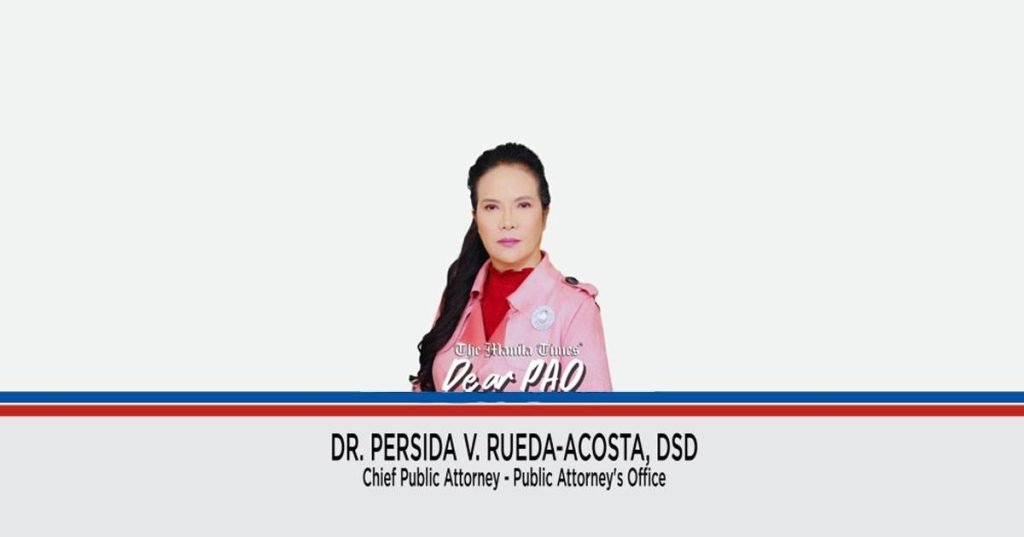
Dear PAO,
I am currently burdened with numerous bills, so I am contemplating obtaining a loan from my officemate’s lending business, payable at a certain date. I have a house and lot, and I am considering constituting it as a real estate mortgage to serve as collateral for the payment of my loan. Upon learning of my plan, my friend generously offered to act as a guarantor for the payment of my loan should I fail to pay it upon maturity. However, my friend asked me two questions: Can he be immediately compelled to pay the said loan if I fail to do so at maturity? What rights, if any, will he have against me if he pays on my behalf?
Cayet
Dear Cayet,
The answer to your first query is no. Your friend may not be immediately compelled to pay for the loan since the liability he assumed is only that of a guarantor. He is entitled to the benefit of excussion as provided under Article 2058 of the New Civil Code, which provides that:
“Article 2058. The guarantor cannot be compelled to pay the creditor unless the latter has exhausted all the property of the debtor and has resorted to all the legal remedies against the debtor.”
Your officemate has in his favor a real estate mortgage over your house and lot and should first exhaust his legal remedies against you and not immediately to your friend. Note, however, that under Article 2059 of the New Civil Code, the benefit of excussion will not take place in the following cases:
“(1) If the guarantor has expressly renounced it;
“(2) If he has bound himself solidarily with the debtor;
“(3) In case of insolvency of the debtor;
“(4) When he has absconded, or cannot be sued within the Philippines unless he has left a manager or representative;
“(5) If it may be presumed that an execution on the property of the principal debtor would not result in the satisfaction of the obligation.”
Since nothing was mentioned that may fall under the immediately preceding cited provision, the benefit of excussion may be availed of by your friend in case you fail to pay your loan in due time.
As to your last query, Article 2066 of the New Civil Code provides that “the guarantor who pays for a debtor must be indemnified by the latter.
“The indemnity comprises:
“(1) The total amount of the debt;
“(2) The legal interests thereon from the time the payment was made known to the debtor, even though it did not earn interest for the creditor;
“(3) The expenses incurred by the guarantor after having notified the debtor that payment had been demanded of him;
“(4) Damages, if they are due.”
Also, Article 2067 of the New Civil Code provides in part that “the guarantor who pays is subrogated by virtue thereof to all the rights which the creditor had against the debtor. Xxx”
Based on the foregoing, it is clear that your friend has the right against you to be reimbursed for the payment of your loan as well as to be indemnified of legal interest and other expenses, among others, if applicable. Also, whatever rights the creditor has against you, your friend will substitute the creditor relative to the said debt and may enforce the rights previously enjoyed by the original creditor.
We hope that we were able to answer your queries. This advice is based solely on the facts you have narrated and our appreciation of the same. Our opinion may vary when other facts are changed or elaborated.
Editor’s note: Dear PAO is a daily column of the Public Attorney’s Office. Questions for Chief Acosta may be sent to [email protected]







